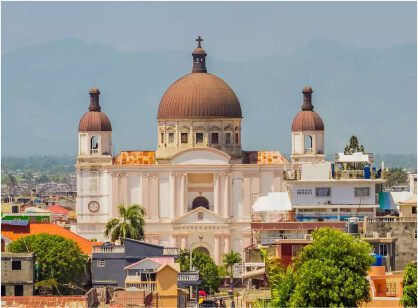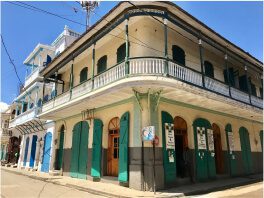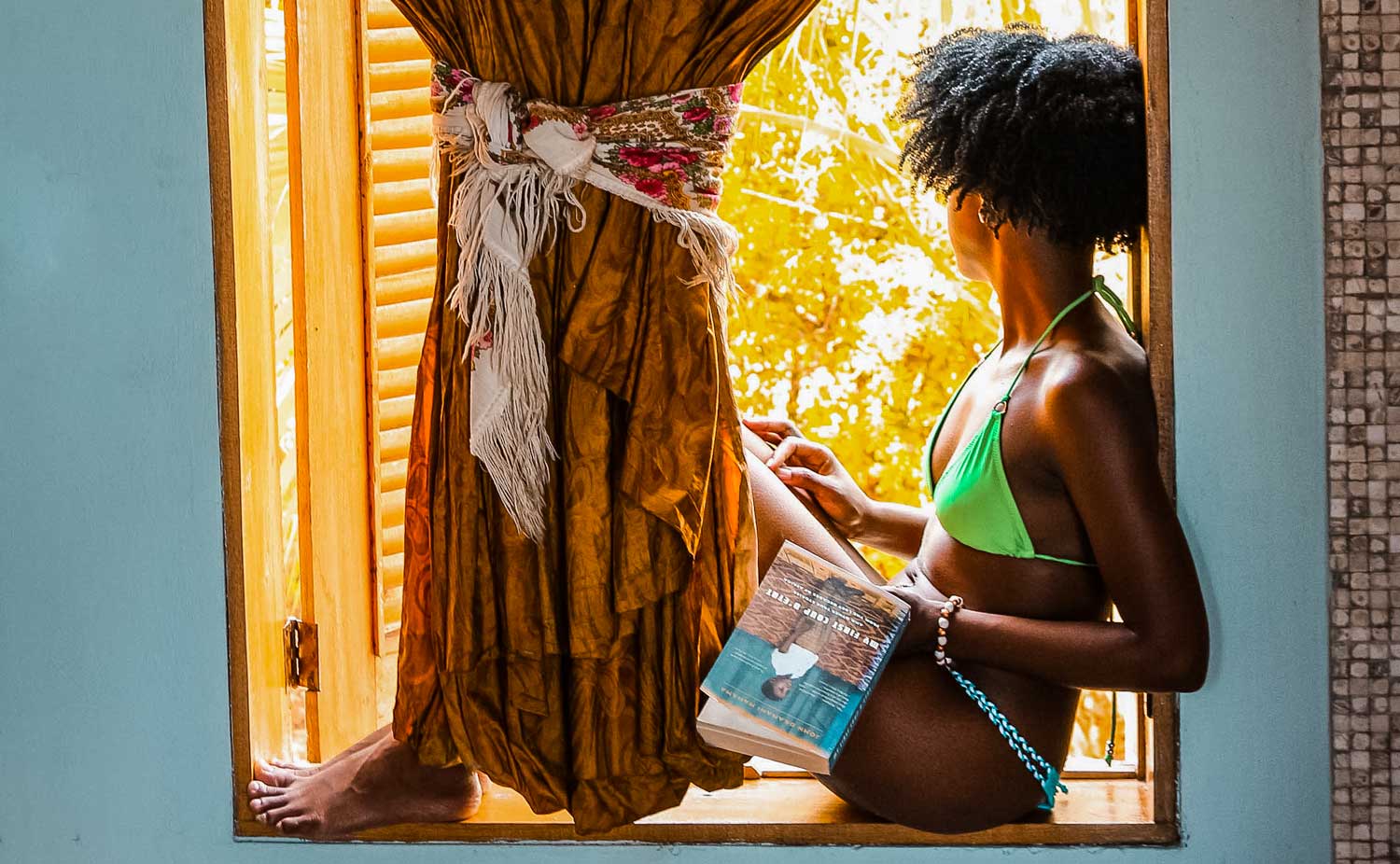
Photo: Amanacer / Emily Bauman
The 10 books you should read before you visit Haiti
Cosy up with these ten books that explore the fascinating stories of Haiti.
Did you know that in Haitian vodou, a healer and a sorcerer are two completely different things? There are so many things to learn about Haitian culture and history that sometimes, the details slip between the fingers. The best way to catch them? Get comfortable with a good book!
Planning a visit to Haiti, or just want a closer understanding of this “land with a soul”? Here are the top 10 books that explore the fascinating history and culture of Haiti.

Masters of the Dew by Jacques Roumain
For those of us who love literature, nothing replenishes our sense of self or our faith in humanity like a good novel. Speaking of humanity, Masters of the Dew by Jacques Roumain, published in 1944 just a few months before the death of its author, is a Haitian literary classic par excellence.
Masters of the Dew is a deeply powerful story of traditional life in rural Haiti, overshadowed by the natural world but illuminated by human struggles. The novel touches on the necessity for a man to confront adversities great and small, from the need for freedom and a future for an entire population, to the need for water, soil and silk. Masters of the Dew is a parable of sorts, and compelling argues that the most beautiful mathematical equation is an addition.
Roumain was deeply invested in politics, and is famous in Haiti for founding one of the nation’s most important institutions for cultural preservation, the National Bureau of Ethnology, as well as resisting American occupation and advocating for Marxism. In fact, it was only thanks to the help of Roumain’s friends in France, André Breton and Aragon (both antifascists and members of the French surrealist movement), that Masters of the Dew was able to see the light of day in France.
We can’t mention Jacques Roumain without introducing another Jacques (and another of Haiti’s great novelists) – Jacques Stephen Alexis.

General Sun, My Brother by Jacques Stephen Alexis
Son of Haitian diplomat and novelist Stephen Alexis (1889–1962), Jacques Stephen Alexis distinguished himself early in life as a brilliant writer and politician. Another outspoken Marxist and close friend of the French surrealists, Jacques Stephen Alexis was already a respected thinker when he published his debut novel, General Sun, My Brother.
The story follows the life of two Haitian laborers from the slums of Port-au-Prince to the cane fields of the Dominican Republic, where they find themselves swept up into one of the most nightmarish moments in the diplomatic history of Hispaniola: the 1937 massacre. Strongly inspired by Roumain’s Masters of the Dew, General Sun, My Brother is a call to action, a refusal of passivity.

In the Flicker of an Eyelid by Jacques Stephen Alexis
Building on the acclaim of his debut novel, In the Flicker of an Eyelid propelled Alexis to his reputation as a genius writer. Another pillar of the Haitian classical canon, In the Flicker of an Eyelid is considered the most beautiful romance novel in Haitian literature. The story begins in a bordello in Port-au-Prince, but don’t let that mislead you – more than just a love story, this novel interweaves lessons about love, doubt, politics, social consciousness, patriotism, and the passage of time.
Rires et Pleurs (Laughs and Cries) by Oswald Durand
If you’re open to poetry and get sentimental about sunsets, reach for Rires et Pleurs (Laughs and Cries). Rires et Pleurs carries in it all of the symbolic weight of a people freshly liberated and on a quest for beauty. Oswald Durand is to poetry what Alexis is to novels.
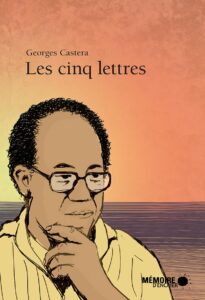
Les Cinq Lettres by Georges Castera
“It is not with ink that I write to you but with my voice of drums besieged by falling stones”
Has a man loved before like Georges Castera in Les Cinq Lettres? “Love me like a burning house” is the poet’s request in this collection, and if you love French poetry then you and Les Cinq Lettres will get on like a house on fire.
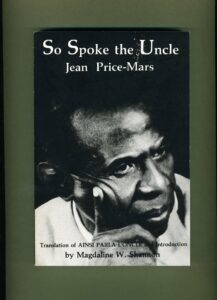
So Spoke the Uncle by Jean Price-Mars
Want to learn more about Haitian culture and identity through a sociological/scientific framework? You’ll want to start with the book that sits at the root of the largest sociocultural movement of the Caribbean and Africa: blackness. In So Spoke the Uncle, Jean Price-Mars preaches a return to Haitan cultural origins. After all, he says, how do we know where we’re going if we don’t know where we come from?
Today, So Spoke the Uncle remains a the go-to reference text for anthropologists consulting the concepts and events crucial to Haiti’s history.

The Equality of Human Races by Anténor Firmin
Long before Price-Mars, Anténor Firmin was writing The Equality of Human Races to show that there was no such thing as race and that black, white, brown, or in between, the human species is one being, united and indivisible. One of the biggest public high schools in Port-au-Prince is named after Firmin.
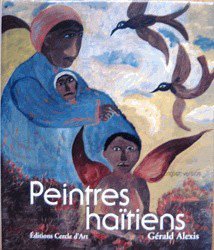
Peintres Haitiens by Gerard Alexis
Interested in Haitian art? Peintres Haitiens by Gerard Alexis should be right up your alley. With over 300 color reproductions and text including art theory and artists’ biographies, Alexis explores five tenements of Haitian art: portrait and historical paintings, nature and daily life, vodou mysticism and figuration-abstraction.
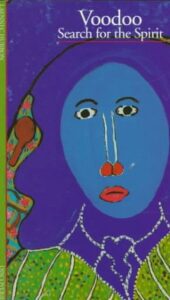
Voodoo: Search for the Spirit by Laennec Hurbon
And if you want to quench your curiosity for Haitian vodou, we strongly recommend Voodoo: Search for the Spirit by Laennec Hurbon. Neither in-depth study nor lighthearted foray, Voodoo: Search for the Spirit offers an excellent, accessible, practical overview of the topic, enriched by pages and pages of gorgeous full-color photos and excerpts from other literature on vodou.

Haiti: the Aftershocks of History by Laurent Dubois
“As acclaimed historian Laurent Dubois demonstrates, Haiti’s troubled present can only be understood by examining its complex past. The country’s difficulties are inextricably rooted in its founding revolution – the only successful slave revolt in the history of the world; the hostility that this rebellion generated among the surrounding colonial powers; and the intense struggle within Haiti itself to define its newfound freedom and realize its promise.” ― Macmillan
Here’s what the critics say about Haiti: the Aftershocks of History:
“Well-written, authoritative history… enriched by careful attention to what Haitian intellectuals have had to say about their country over the last two centuries.” ―The New York Times Book Review
“A sweeping, passionate history of Haiti… Smart, honest, and utterly compelling, this book is the national biography this country and its people deserve.” ―Boston Globe
“A book as welcome as it is timely: a lucid one-volume history of the nation, from Toussaint to the present, anchored in scholarship but rendered as a comprehensive-but-swift narrative for the general reader.” ―The Nation
“This excellent, engaging history seeks to strip away centuries of mocking and reductive bias. Dubois’s Haiti is a land of ceaseless activity, a ferment of suppression and insurrection exacerbated by the mercenary intrusions of foreign powers–in the past century, chiefly the United States. Dubois also traces a parallel history of bold social experiments on the part of everyday Haitians… Throughout, he makes clear how economic pressures and political crises have left even the county’s better leaders hamstrung, without downplaying their failures in fulfilling Haiti’s great promise.” ―The New Yorker
Read more critics’ reviews for Haiti: the Aftershocks of History.
Bonus:
La Belle Amour Humaine by Lyonel Trouillot
Mon Pays Que Voici by Anthony Phelps
History of Haiti by Suzy Castor. French edition (Haiti Autrement) available online here
Written by Melissa Beralus and translated by Kelly Paulemon.
Published December 2019
More Art & Culture

Paradise for your inbox
Your monthly ticket to Haiti awaits! Get first-hand travel tips, the latest news, and inspiring stories delivered straight to your inbox—no spam, just paradise.


